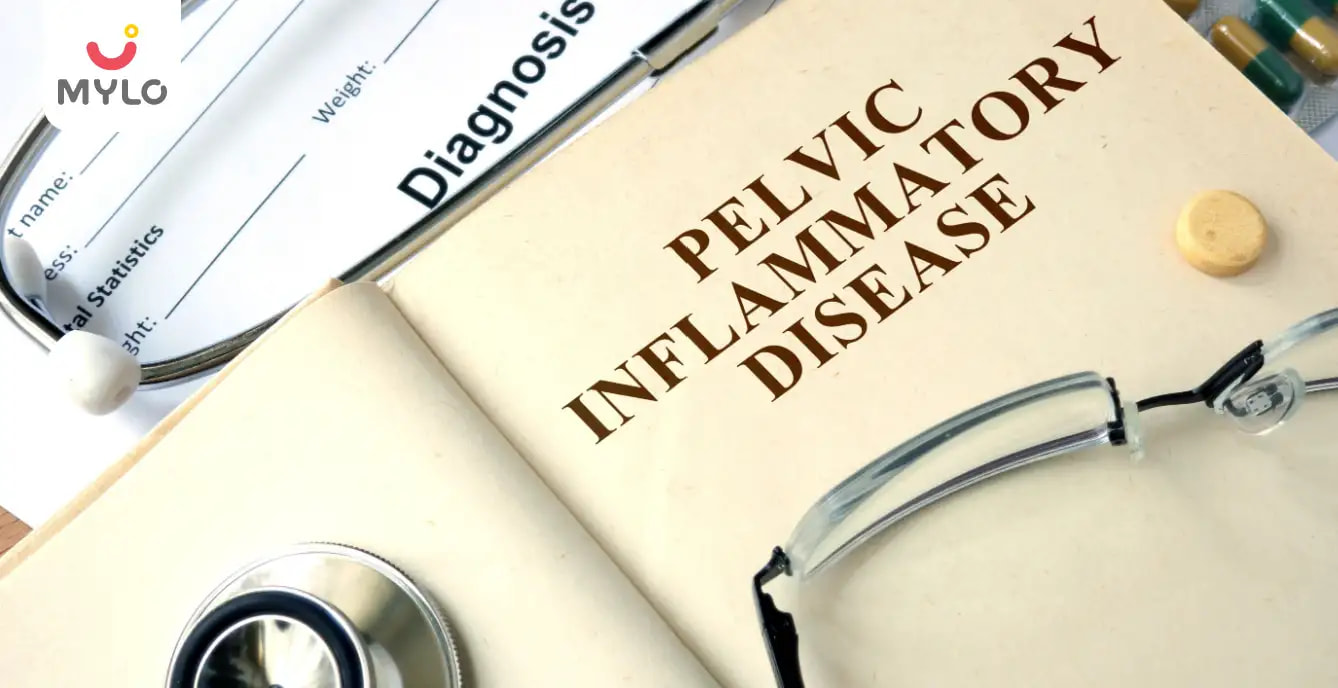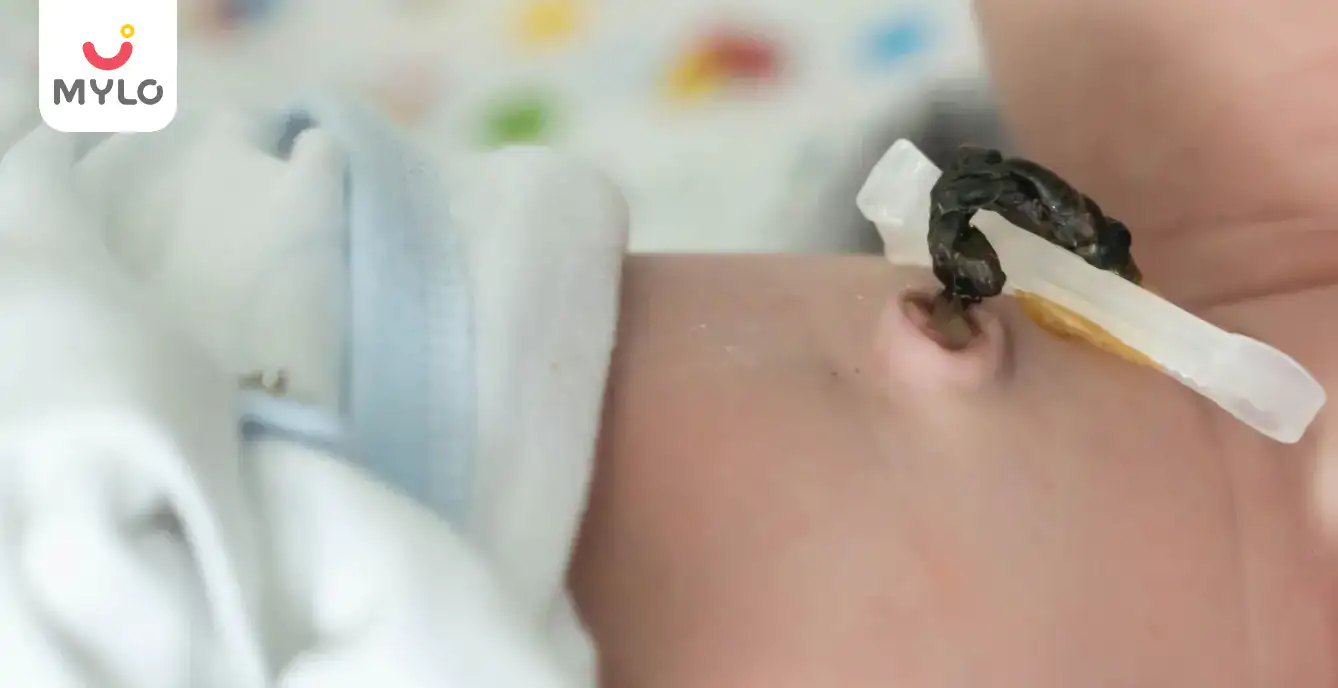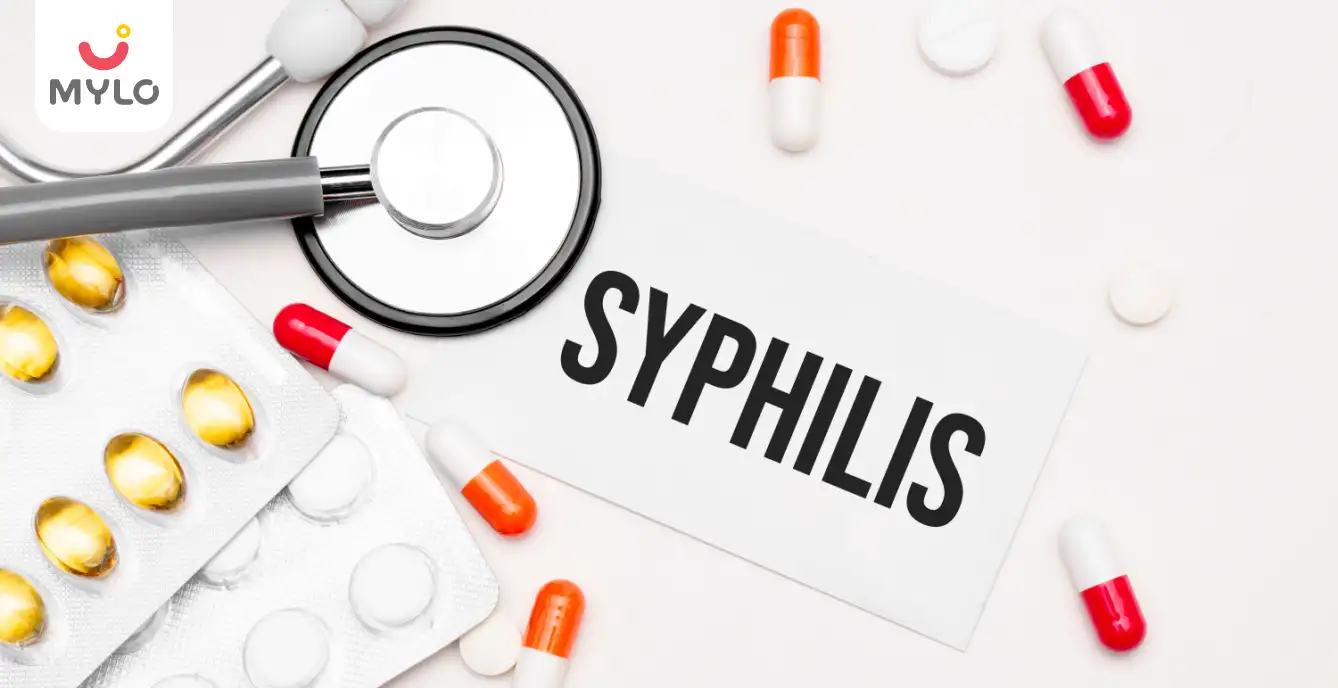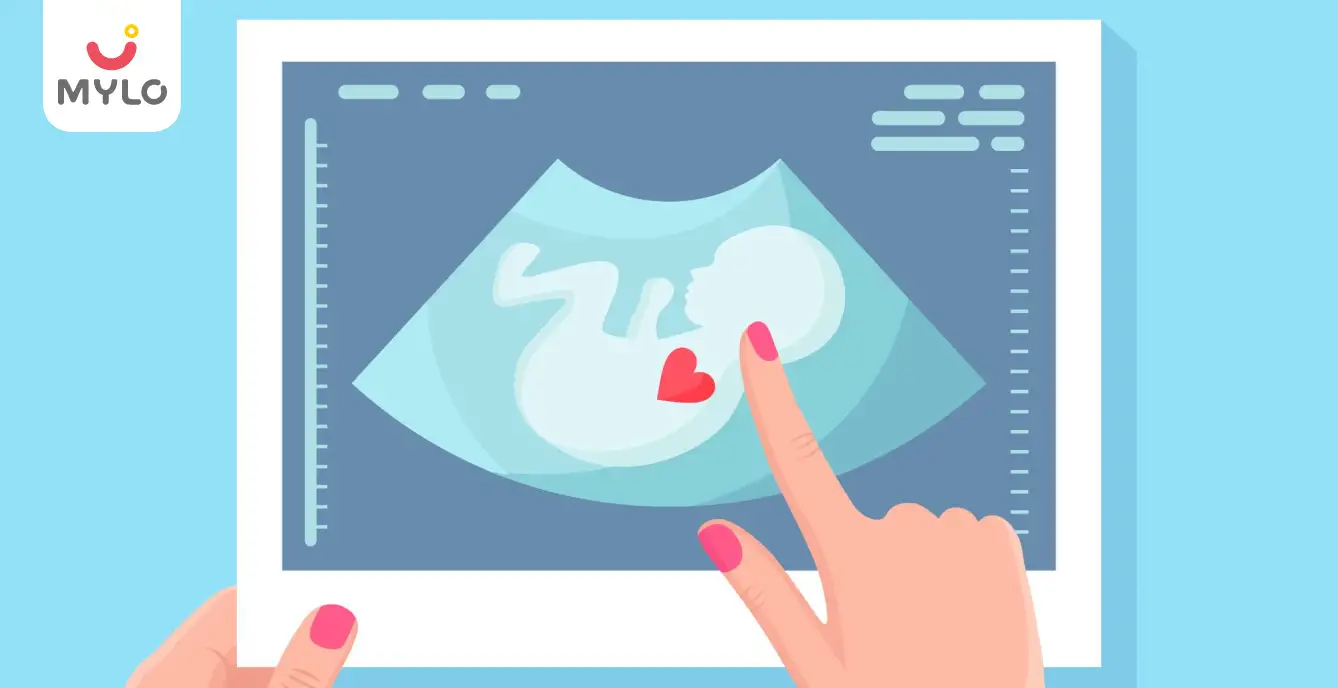Home

Illnesses & Infections

Pelvic Inflammatory Disease (PID): Symptoms, Causes & Treatment
In this Article

Illnesses & Infections
Pelvic Inflammatory Disease (PID): Symptoms, Causes & Treatment
Updated on 1 May 2023
Infectious inflammation of the female reproductive tract is known as pelvic inflammatory disease (PID). STIs are the usual culprits in this case. Pain in the lower abdomen, nausea, vomiting, and a discharge from the uterus are all symptoms. Complications like infertility can be avoided with prompt treatment of PID, typically antibiotics. Your partner has to be examined and treated as well.
What Is A Pelvic Inflammatory Disease?
Pelvic Inflammatory Disease is one of the most dangerous infections that occur in the female genitalia. In fact, one of the major causes of PID is the transfer of bacteria from the vagina right into the uterus and other parts of the female reproductive system. Another aspect to keep in mind is the fact that these are sexually transmittable bacteria.
The initial signs, as well as symptoms of PID disease, may be quite subtle. However, ignoring the symptoms or signs at an early stage could lead to increasing hospital bills at a later stage. Many women are usually asymptomatic or do not feel any signs or symptoms. In such situations, you might not realize much until you find it difficult to conceive or unexpectedly develop pelvic pain.
How Does Pelvic Inflammatory Disease Impact Me?
Pelvic inflammatory disease can impact you in numerous ways. Therefore, it is important for one to seek immediate medical care especially if one experiences the following.
-
Extreme or unbearable pain in the lower regions of the abdomen.
-
Continuous vomiting or nausea.
-
High Fever
-
The odor of the vaginal discharge.
Sometimes, you may experience symptoms that aren’t that severe. Thus, it is still important to consult your doctor and diagnose the problem immediately. Bleeding, vaginal discharge that has an odor, or even pelvic pain can turn out to be very strong symptoms of an STI. If you experience any of the above symptoms, it may be crucial for you to pause having sex, apart from seeking medical attention. Early treatment can help you diagnose the problem more effectively.
Who Is At Risk For PID?
Women are usually at a high risk of developing Pelvic Inflammatory Disease (PID), especially if they come under the following categories.
-
If you aren’t more than 25 years but are sexually active.
-
If you have had numerous sexual partners.
-
If you have been in a sexual relationship with an individual who has numerous sexual partners.
-
If you do not use any form of physical contraceptive such as a good-quality condom.
-
Women who douche regularly disturb the microbial environment living in their vaginas.
-
If you have had a history of PID in your family background.
You may also be at a higher risk of developing PID especially if you already have an IUD inserted in your genitalia. However, the risk only lasts during the initial three weeks right after the insertion.
What Are The Symptoms Of PID?
The initial signs, as well as symptoms of PID, may be difficult to realize or even recognize. In fact, many women are asymptomatic and do not realize they have PID until it is way too late. Some of the most common symptoms include mild or severe pain in the pelvic region. You might also experience unusual vaginal discharge that has a very pungent odor.
Some of the other common symptoms include painful intercourse, bleeding between periods or after sex, high fever, and painful urination. If you experience any of these symptoms, it may be high time to get in touch with your doctor.
Causes Of Pelvic Inflammatory Disease
The major causes of PID include bacteria from gonorrhea as well as chlamydia infections. The transfer of these bacteria is possible only through unprotected sexual activity. Sometimes, these bacteria can enter your vagina when the natural barrier of your cervix is disturbed.
The natural barrier of your cervix can get damaged during childbirth, abortion as well as miscarriage. Apart from that, menstruation can also alter the composition of your cervix. If the insertion of an IUD is not done under hygienic conditions, bacteria can easily gain access to your cervix. Therefore, detecting the signs of PID and seeking treatment early is one way to prevent the extreme symptoms of this infection. It may also be important for you to get yourself checked frequently.
How Widespread Is Inflammatory Pelvic Disease?
Every year, approximately 1 million women develop Pelvic Inflammatory Disease in U.S. Besides, about 100,000 women end up becoming infertile due to negligence. Numerous ectopic pregnancies are due to PID disease as well. In recent years, the numerous cases of women developing PID have drastically reduced.
One of the main reasons for this trend is that women are now getting regular appointments to check for gonorrhea as well as chlamydia, two of the most dangerous infections that result in Pelvic Inflammatory Disease.
The Method For Diagnosing Pelvic Inflammatory Illness
Getting early treatment for PID can be extremely beneficial, especially in the long run. Your doctor will diagnose PID by seeking information from the following sources.
-
Your complete medical history.
-
The frequency of your sexual activity.
-
A sample of your vaginal discharge.
-
A Pelvic exam.
-
Extensive blood tests.
-
Urine tests.
-
An ultrasound to get a clearer insight into your health issue.
-
Culdocentesis
Treatment For PID
One good news for individuals suffering from PID disease is that there are numerous treatment options available for you. In fact, your doctor might prescribe you a few medications as well as antibiotics to be taken by mouth. You might have to continue taking your medications even after you are completely healed.
Many women usually see their symptoms diminishing way before their infection dies. Make sure to visit your doctor even during your medication period since your healthcare provider can help you track the progress in a much clearer manner. Apart from that, they will also get some clarity into the overall working of the antibiotic.
A few women might still see symptoms and signs even after the treatment is over. In such situations, you might want to consult your doctor who will prescribe IV medications. IV medications are given to women who are pregnant, feel extremely sick, or have had severe infections before. However, you might still be prescribed an IV medication especially if you have an abscess causing ovaries infection.
You may like: Ovarian Cyst: Types, Causes, Symptoms and Treatment
Can Pelvic Inflammatory Disease Be Avoided?
Yes! Pelvic Inflammatory Disease can definitely be avoided especially if you take a few preventative measures listed below.
-
Make sure to indulge in safe sex practices. It may be important for you to use condoms.
-
Limit the number of sexual partners. It may also be important for you to learn more about your partner’s sexual background!
-
Consider opting for contraception. There are numerous barrier methods one could go for; however, it can help to consult your doctor and then figure out the best option. Even if you are on pills, it is still important to use a condom every time you indulge in sexual activity.
-
It is always best to get officially tested for a sexually transmitted infection. You can also consider requesting your partner to get tested. Thus, this way, one can avoid the spread of such infections effectively.
-
Avoid douching your vagina to lower the risk of PID. This can disturb the overall pH levels of your vagina and alter the composition of the bacteria.



Written by
Sanju Rathi
A Postgraduate in English Literature and a professional diploma holder in Interior Design and Display, Sanju started her career as English TGT. Always interested in writing, shetook to freelance writing to pursue her passion side by side. As a content specialist, She is actively producing and providing content in every possible niche.
Read MoreGet baby's diet chart, and growth tips

Related Articles
Related Questions
Hello frnds..still no pain...doctor said head fix nhi hua hai..bt vagina me pain hai aur back pain bhi... anyone having same issues??

Kon kon c chije aisi hai jo pregnancy mei gas acidity jalan karti hain... Koi btayega plz bcz mujhe aksar khane ke baad hi samagh aata hai ki is chij se gas acidity jalan ho gyi hai. Please share your knowledge

I am 13 week pregnancy. Anyone having Storione-xt tablet. It better to have morning or night ???

Hlo to be moms....i hv a query...in my 9.5 wk i feel body joint pain like in ankle, knee, wrist, shoulder, toes....pain intensity is high...i cnt sleep....what should i do pls help....cn i cosult my doc.

Influenza and boostrix injection kisiko laga hai kya 8 month pregnancy me and q lagta hai ye plz reply me

RECENTLY PUBLISHED ARTICLES
our most recent articles

Labour & Delivery
Lightning Crotch in Pregnancy: All You Need to Know

Vaginal Discharge
Vaginal Dilator: Learn its Types & How To Use It?

Care for Baby
Infected Umbilical Cord: Symptoms, Treatment And Prevention

hair regime
Is Hair Fall Normal in Pregnancy

Illnesses & Infections
Syphilis: Symptoms, Causes, Risks & Treatment

Scans & Tests
Congenital Heart Disease: Symptoms, Causes & Treatment
- Fetal Echo Test in Pregnancy: A Diagnostic Tool for Detecting Heart Defects in the Womb
- Bedwetting (Nocturnal Enuresis): Causes, Symptoms & Treatment
- Birthmark: Types, Causes, Risks & Treatment
- Behaviour Therapy: Benefits, Types & Techniques
- How Long Does Breast Milk Last at Room Temperature?
- Thrush: Causes, Symptoms, Treatment, and More
- Childhood Asthma: Symptoms, Causes & Treatment
- Reflux in Baby: Symptoms, Causes & Treatment
- Pre Eclampsia: Meaning, Causes & Symptoms
- Baby Diarrhea: Causes, Symptoms & Treatment
- Bronchiolitis: Causes, Symptoms & Treatment
- Pelvic Pain in Pregnancy: Symptoms & Treatment
- Saliva During Pregnancy: Causes & Prevention
- Effective Ways to Treat Jaundice in Children: Expert Tips for a Speedy Recovery


AWARDS AND RECOGNITION

Mylo wins Forbes D2C Disruptor award

Mylo wins The Economic Times Promising Brands 2022
AS SEEN IN

- Mylo Care: Effective and science-backed personal care and wellness solutions for a joyful you.
- Mylo Baby: Science-backed, gentle and effective personal care & hygiene range for your little one.
- Mylo Community: Trusted and empathetic community of 10mn+ parents and experts.
Product Categories
baby carrier | baby soap | baby wipes | stretch marks cream | baby cream | baby shampoo | baby massage oil | baby hair oil | stretch marks oil | baby body wash | baby powder | baby lotion | diaper rash cream | newborn diapers | teether | baby kajal | baby diapers | cloth diapers |




